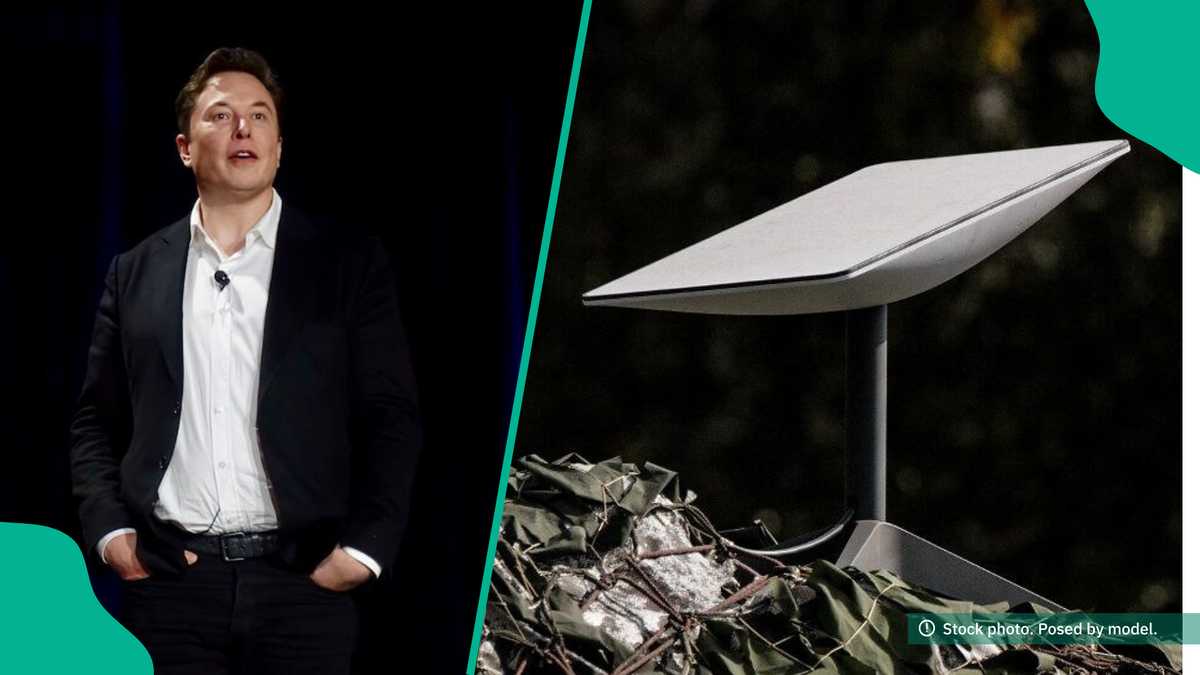Meta's Big AI Play: Zuckerberg's Recruitment Drive to Outpace OpenAI | AI News
The AI Recruitment Wave
Last updated:

Edited By
Mackenzie Ferguson
AI Tools Researcher & Implementation Consultant
Meta is making waves in the AI world as it sets its sights on acquiring top talent from competitors like OpenAI to bolster its generative AI capabilities. With Mark Zuckerberg leading the charge, Meta is not just playing catch-up; it's aiming to revolutionize AI across its platforms like Facebook and Instagram. However, the company faces challenges of internal duplication and lags behind its competitors in key areas. But with its immense data resources, Meta believes it can emerge victorious in this high-stakes race.
Meta, formerly known as Facebook, is making significant strides in the field of artificial intelligence, underlining its importance by aggressively recruiting top-tier AI talent. Spearheaded by CEO Mark Zuckerberg, Meta is working to position itself as a leader in generative AI, a move crucial to its future growth and technological competitiveness. Acknowledging the transformative potential of AI, Meta is focusing its efforts on both foundational research and practical product applications, hoping to weave AI throughout its well-known platforms such as Facebook and Instagram. This initiative reflects a determination to come from behind as the company attempts to match and surpass rivals such as OpenAI and Google, who currently hold significant leads in the AI landscape. By leveraging its extensive user base and abundant data resources, Meta believes it can carve out a competitive advantage in developing robust AI technologies. More about Meta's efforts can be found in recent reports from The Wall Street Journal .
Despite its aggressive push into the AI race, Meta faces several challenges due to its organizational structure. It's pointed out that the dispersion of focus across various teams has sometimes led to overlaps and inefficiencies, potentially hindering its goal of swift innovation. Mark Zuckerberg’s direct involvement, a clear indicator of AI's strategic importance to Meta’s future, also highlights the internal emphasis placed on overcoming such challenges. In an effort to integrate AI across its services seamlessly, Meta's overarching strategy involves not only research but also a significant emphasis on product development in AI. This dual focus aims to elevate the user experience by embedding AI functionalities that could potentially revolutionize interactive experiences on platforms like Instagram and WhatsApp. As Meta navigates these complexities, it continues to recruit aggressively, including talents from competitors like OpenAI, shaping a robust AI team poised to drive its vision forward. These strategic maneuvers are detailed further in the Wall Street Journal article .
Mark Zuckerberg's role in artificial intelligence (AI) development has become increasingly pronounced as Meta, formerly known as Facebook, has strategically positioned itself to become a leader in this transformative technology. With AI considered crucial for future growth, Zuckerberg's involvement underscores the technological and strategic importance of AI to the company's overarching mission. His direct engagement in recruiting top-tier AI talent from industry competitors like OpenAI highlights Meta's urgency to accelerate their AI innovation and to integrate these capabilities into platforms such as Facebook and Instagram. Meta's approach is not just focused on technological ingenuity but also on strategically harnessing its vast data resources and extensive user base to propel its AI initiatives forward. This aggressive strategy aims to close the gap with current AI powerhouses like Google and OpenAI, although it is evident that Meta continues to trail in some technological aspects [1](https://www.wsj.com/tech/meta-ai-recruiting-mark-zuckerberg-openai-018ed7fc).
Zuckerberg's vision for AI at Meta is holistic, encompassing fundamental research and practical applications across their product suite. This dual focus is designed not only to innovate but also to retain user engagement by embedding new AI capabilities that enhance user experience. The integration of generative AI into everyday user interfaces on platforms like Facebook and Instagram represents a leap towards smarter, more responsive social interactions. At the heart of this push is a commitment to developing what is often termed ‘superintelligence’, a level of AI sophistication that could redefine digital communications and data analysis. However, Meta’s journey is not devoid of challenges, including internal friction and overlapping efforts among various teams, which may impede swift progress. Addressing these internal inefficiencies is crucial as Meta races to outpace its rivals [1](https://www.wsj.com/tech/meta-ai-recruiting-mark-zuckerberg-openai-018ed7fc).
Despite the immense potential, concerns regarding Meta’s strategic direction in AI development persist, especially in relation to the broader AI community's ethical standards and collaboration norms. While the company's vast data troves present a unique advantage, its competitive tactics, such as talent poaching, have sparked discussions about the sustainability and ethical implications of such aggressive recruitment. The potential for AI to exacerbate issues like misinformation is also a pressing societal concern [1](https://www.wsj.com/tech/meta-ai-recruiting-mark-zuckerberg-openai-018ed7fc). This dual-edged reality positions Zuckerberg at a pivotal junction where the results of Meta's AI strategies could significantly influence economic, social, and political realms, potentially setting new norms in global communication and technology interactions.
Meta is accelerating its focus on artificial intelligence (AI) development as a key pillar in its strategic vision. The company is ambitiously recruiting top AI talent from competitors like OpenAI to bolster its capabilities in generative AI, a fast-evolving segment that's quickly reshaping tech industry standards. Mark Zuckerberg's involvement in these efforts underscores AI's critical role in Meta's future plans. By embedding AI across platforms such as Facebook and Instagram, Meta is positioning itself to not only catch up with industry leaders but potentially leapfrog them by leveraging its extensive user base and vast troves of data. These resources are crucial as they offer the data-rich environment needed for AI models to learn, innovate, and improve. More details on Meta's strategy can be found in this [Wall Street Journal article](https://www.wsj.com/tech/meta-ai-recruiting-mark-zuckerberg-openai-018ed7fc).
In the realm of AI research and product integration, Meta is undertaking a dual approach that emphasizes both fundamental exploratory research and practical application. This strategic focus has led to significant efforts in streamlining AI projects across its diverse teams, although this has sometimes resulted in overlapping initiatives. Despite trailing in certain AI arenas, particularly when compared to the prowess of OpenAI and Google, Meta is confident that its platform's scale will offer unique advantages in the race for AI innovation. To explore more on Meta's professed AI ambitions, check out the coverage by [The Wall Street Journal](https://www.wsj.com/tech/meta-ai-recruiting-mark-zuckerberg-openai-018ed7fc).
Meta's AI journey is not without its challenges. Organizational inefficiencies, such as internal redundancies and competitive pressures, pose significant hurdles. Despite these obstacles, Meta remains convinced that the large amounts of user data it amasses daily provide an unmatched landscape for developing advanced AI technologies. Their substantial investment in AI, including new initiatives and product integrations, serves as a testament to their commitment to overcoming these hurdles. For an in-depth view of these challenges, see the detailed analysis on [The Wall Street Journal](https://www.wsj.com/tech/meta-ai-recruiting-mark-zuckerberg-openai-018ed7fc).
Meta is also recognizing the economic and competitive advantages offered by strategic AI developments. With a $29 billion investment in AI data centers, Meta is laying the groundwork for enhanced computational power necessary to support the next-generation AI applications, a critical step in solidifying its place in the marketplace. However, keeping pace with existing AI leaders like Google and OpenAI involves not only technological investments but also strategic poaching of key talent from these companies. This rigorous talent acquisition strategy has been highlighted in an article from [The Wall Street Journal](https://www.wsj.com/tech/meta-ai-recruiting-mark-zuckerberg-openai-018ed7fc).
In the rapidly evolving landscape of artificial intelligence (AI), Meta faces a challenging environment marked by intense competition with giants like OpenAI and Google. Meta's strategic push includes not only doubling down on its AI research and product development but also ambitiously recruiting top talent from its competitors. This aggressive approach underscores the critical importance that AI holds for Meta's future, supporting both the enhancement of existing products and the potential for innovative new advancements. Despite Meta's extensive resources and robust data pool which provide a competitive edge, the company is playing catch-up in some areas of generative AI.
Meta's competitors, like OpenAI and Google, are formidable opponents in the AI sphere. OpenAI, for instance, has been at the forefront with innovative breakthroughs and widespread adoption of its AI models. Similarly, Google's extensive research capabilities and historical strength in AI present tough competition for Meta. The ongoing "talent wars" are a testament to the competitive intensity in the field, as companies are vying for the best researchers and engineers who can lead the next phase of AI evolution. While Meta's recruitment from OpenAI reflects its determination, challenges such as maintaining talent retention and dealing with internal inefficiencies could hinder its progress.
Moreover, Meta's organizational structure presents its own set of challenges. The spread-out nature of its AI teams often leads to duplicated efforts, which can delay innovation and reduce efficiency. The company also struggles with the broader strategic challenge of balancing its metaverse initiatives with AI development, stretching its resources thin. This dilemma is further complicated by navigating regulatory landscapes, especially given ongoing scrutiny over data privacy and ethical AI deployment by entities like the EU. Thus, while Meta's potential to integrate AI into platforms like Facebook and Instagram is promising, the journey is fraught with substantial obstacles that require strategic nimbleness.
Despite these hurdles, Meta is maneuvering its vast user base and extensive data reservoirs to its advantage. With billions of users across platforms like Facebook and Instagram, Meta can gather an immense amount of data to fuel AI training, potentially leading to more personalized and engaging user experiences. This could not only redefine user interaction with its services but also offer greater monetization opportunities through AI-driven innovations. Such advantages are critical if Meta aims to bridge the gap with established AI leaders and secure a prominent position in the digital future.
Meta's ongoing efforts in the arena of Artificial Intelligence (AI) are strategically poised to capitalize on its largest untapped advantage: a vast user base coupled with extensive data resources. Unlike many competitors, Meta's global platform includes billions of users who generate diverse data daily, from social interactions to behavioral trends, allowing for richer and more nuanced AI training datasets. This massive influx of data equips Meta with the capability to innovate and scale AI solutions tailored specifically to user engagement and experience, offering an optimization edge in areas like content recommendation and personalized advertising. Furthermore, these resources support the development of AI-powered tools, amplifying Meta’s existing strengths and providing a competitive cushion in the AI race. By tapping into this wealth of information, Meta is better positioned to refine its AI models for real-world applications, fostering a more reactive and adaptable digital ecosystem for its users.
With Mark Zuckerberg actively championing AI as vital to Meta's future, the company can seamlessly integrate sophisticated AI functionalities into its core platforms like Facebook and Instagram, potentially redefining user interaction. This expansive user network and the extensive data harvested from it are not merely operational assets but strategic tools that could redefine Meta's positioning in the global tech industry. The ability to leverage such a data pool enhances Meta’s AI training methodologies, providing insights that go beyond conventional market analytics, ultimately translating into innovative AI products that align closely with user behavior and expectations.
The aggressive recruitment strategies Meta employs underscore its commitment to not only bridge but also extend its capabilities in AI, leveraging its user and data advantages as a springboard for technological advancement and market dominance []. Acknowledging the synergy between extensive data resources and cutting-edge AI development, Meta's path, though challenged by mighty contenders like OpenAI and Google, is braced by intrinsic strengths that facilitate rapid innovation and sustainable competitive advantages in AI-driven products and services [].
Meta's AI journey is marked by an aggressive drive to recruit top talent and rapidly integrate artificial intelligence into its platforms. This initiative is reflective of a broader strategy to not only catch up with industry leaders like OpenAI and Google but to potentially leapfrog them in the competitive AI landscape. Meta's efforts are characterized by significant investments in research and development along with a concerted push to apply AI innovations across its large suite of products, including Facebook and Instagram.
Meta Platforms Inc. is striving ambitiously to redefine its position within the artificial intelligence (AI) landscape, a move underscored by its recent efforts to recruit top-tier AI talent and invest heavily in AI infrastructure. Experts in the field offer diverse perspectives on Meta's strategy, highlighting both the potential awards and inherent risks. The company, driven in part by CEO Mark Zuckerberg's vision, is incorporating AI as a core component of its future operations, particularly focusing on leveraging its vast troves of user data and its extensive engineering capabilities. Such strategic moves are seen as pivotal for Meta as it aims to integrate AI innovations into its platforms like Facebook and Instagram, enhancing user experience and engagement .
From a favorable standpoint, experts highlight that Meta's existing resources, including its enormous user base and data reserves, position the company well to capitalize on AI's transformative potential. These resources could empower Meta to drive efficient and highly personalized advertising, develop advanced AI-driven products such as their AR glasses, and create sophisticated enterprise tools that could redefine customer service dynamics, particularly in its communication platforms like WhatsApp and Messenger. Such initiatives are perceived as not only offering a boost in revenue streams but also ensuring Meta remains a formidable presence in the competitive AI space .
Conversely, the risks surrounding Meta's aggressive approach cannot be overlooked. Amidst a fiercely competitive market that includes tech giants like OpenAI and Google, Meta's efforts are fraught with challenges such as mitigating talent retention issues and navigating regulatory landscapes, particularly those related to privacy laws in the European Union. These hurdles are compounded by financial pressures from ongoing investments in the company's metaverse projects, which have yet to show profitable returns. Meta's reliance on a top-down management style may also not be agile enough to compete effectively with more nimble, open-source driven projects .
Additionally, public sentiment toward Meta's recruitment strategies remains mixed. While some see Meta's poaching of talent as a necessary strategy to keep pace with market leaders in AI, others critique it for generating an unsustainable work environment and raising ethical concerns about superintelligence. The sustainability and ethical implications of aggressively pursuing AI development are frequently debated in public forums, reflecting the polarization of opinions about the direction in which AI technology is progressing under corporate stewardship .
In summary, while there is significant optimism surrounding Meta's resource-driven strategy in the AI sector, the company must adeptly navigate the challenging terrain of technological innovation, regulatory scrutiny, and talent management. The outcome of these efforts holds substantial implications not only for Meta but also for the broader technological and societal landscapes, influencing economic opportunities, social interactions, and even political engagements globally .
The public response to Meta's aggressive strategy in AI has been a mixture of intrigue and concern. With Meta diligently attracting top-tier talent from leading competitors like OpenAI, many observers believe that this is a crucial step for Meta to maintain its competitiveness in the AI space. The aggressive hiring tactics have drawn both admiration and criticism, as some applaud Meta's ambition to spearhead advancements in AI research and integration, while others worry about the ethical implications of such aggressive recruitment.
Furthermore, there's a budding concern over Meta's vision of creating a 'superintelligence.' Some fear the potential dangers of AI systems surpassing human cognitive abilities. This vision has sparked significant discourse across social media platforms and technology forums. While some hail this ambition as a bold move towards innovation, others perceive it as a risk that could exacerbate issues within the AI community, potentially leading to a monopolistic ecosystem that stifles competition and ethical development.
Despite the controversy, there is a consensus that Meta's initiative could have substantial future implications across various sectors. Economically, if successful, it could significantly enhance Meta's advertising revenue streams and stimulate job creation within the AI industry. Socially, while enhanced AI could improve user experience, it could also deepen social divides through targeted misinformation and augmented filter bubbles. Politically, the influence of Meta's AI could either mitigate or magnify the spread of misinformation, depending on how it's managed and deployed. Failure in this arena, however, could not only harm Meta's financial standing but also lead to a loss of influence in shaping global technological and social trends.
Meta's aggressive push towards AI is not just a strategic play for technological superiority but also a potential game-changer in various realms. Economically, the success of Meta's AI endeavors could lead to a substantial increase in advertising revenue, given AI-driven ad personalization might become more effective, especially in an era where traditional ad platforms face growing scrutiny. Moreover, the creation of AI-related jobs could help bolster economies worldwide. However, failure to keep up with AI advancements could result in financial strain and possibly delay broader AI innovations .
Socially, the integration of generative AI into platforms like Facebook and Instagram carries both promise and risk. On one hand, AI could significantly improve user engagement, offering more personalized and enriching experiences. On the other hand, there are genuine concerns about AI amplifying existing issues such as filter bubbles and misinformation, which could lead to greater polarization in social discourse . A failure in AI integration might not just stagnate user growth but also reduce the platform's relevance in rapidly advancing digital landscapes.
Politically, Meta's advancements in AI have the potential to greatly impact how information is disseminated, potentially providing tools to both combat and spread misinformation. Successful AI integration could enhance Meta's influence in shaping public and political discourse by providing more factual and balanced information. However, failure in these efforts might curtail Meta's influence in the tech industry, allowing other tech companies to fill the void and redefine the way political conversations are held online .
In conclusion, while Meta's initiatives in advancing AI technologies are fraught with challenges, they also offer substantial opportunities. The overall impact will largely depend on the company's ability to effectively harness AI's potential while navigating the associated ethical and operational complexities. These developments could redefine Meta's role not just within the technology sector, but across economic, social, and political realms, potentially setting new benchmarks in technological integration and application across industries .












